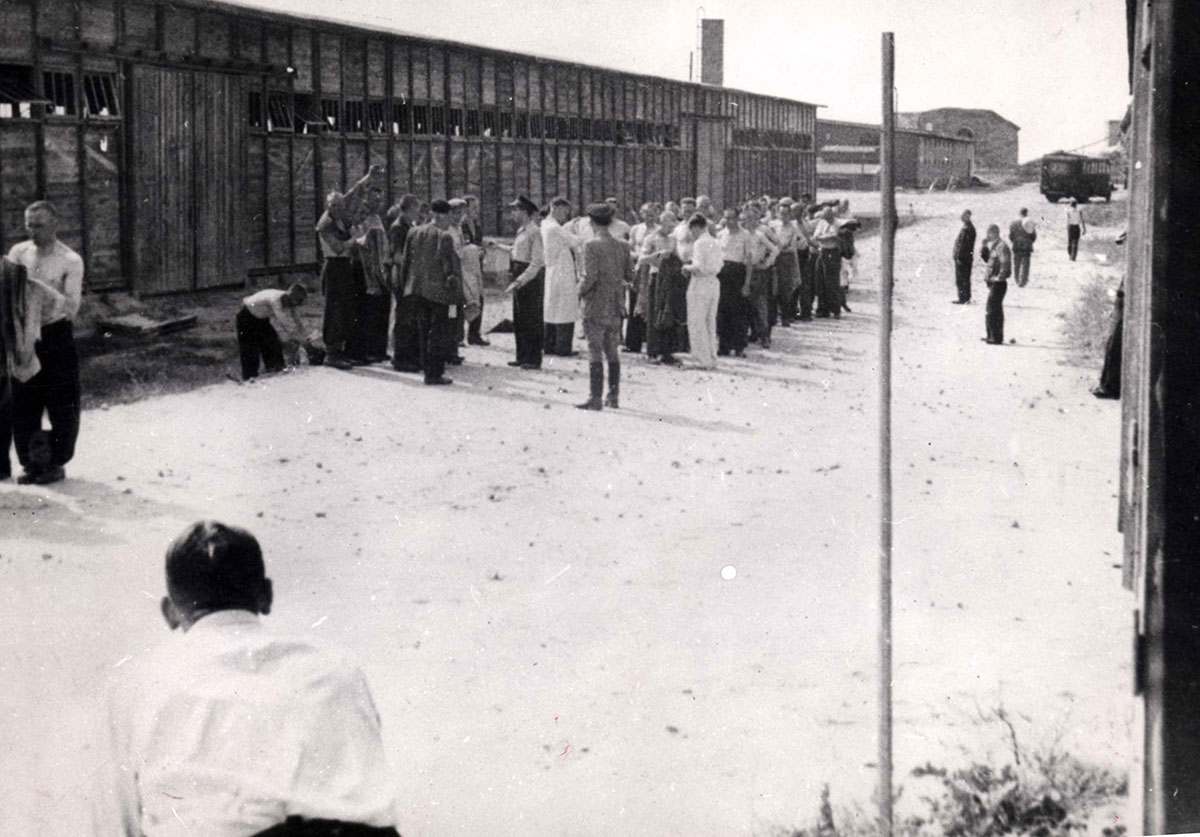
Treblinka, Poland, Prisoners Standing Next to a Barrack in the Camp, Being Inspected by a Doctor
The Demjanjuk trial is opening tomorrow in Germany. Unquestionably trials centered on crimes committed during the Holocaust serve as significant forums for bringing the history of that era to the public’s attention. They provide an opportunity to highlight not only events but to explore society-wide and individual responsibility for the atrocities that were committed during the Holocaust. Such trials remind us of the cavernous pitfalls inherent in eschewing basic moral norms to achieve ideologically motivated goals. The scourges of antisemitism, racism, xenophobia and uninhibited hatred, which lie at the heart of the Holocaust, come to the fore in these trials, reminding us why pluralism is invaluable to the health of our societies.
The very fact of the trial raises several important questions. Is it reasonable to try a man, aged 89, who was already tried in Israel for his role in the Holocaust and found not guilty? The answer is yes. First of all there can be no statute of limitations on crimes committed as part of the Holocaust. Regardless of a suspect’s age, if he is accused of such crimes and there is enough evidence to bring him to trial, a trial must be held. As to having been tried in Israel previously: John (Ivan) Demjanjuk was tried as Ivan the Terrible, a vicious guard from the Treblinka Extermination Camp. During the course of his trial in Jerusalem and the appeal, it became clear that there was a certain element of doubt regarding his identity, and that he might not be Ivan the Terrible. The trial, however, did make a strong case for him having been a guard recruited by the SS. There remains a serious body of evidence that Demjanjuk served, in among other places, the Sobibor Extermination Camp. He is now being tried as an accessory to murder of some 27,000 people in Sobibor.
Another issue that is being much discussed in light of the Demjanjuk trial concerns the question of Holocaust remembrance. Some are asking if this will be the last high profile trial of a Nazi war criminal? Of course given the age of most surviving war criminals from the Holocaust era, there probably won’t be many more such trials. There are some trials and investigations pending, however, among them the case of Sándor Képíró. Képíró, an officer in the Hungarian occupation forces in the area of Novi Sad (Újvidék) took part in the massacre of over 1000 people, among them 700 Jews, in January 1942. A court in Hungary soon after the end of the war tried Képíró in absentia and found him guilty, but he was never caught and made to serve his sentence. There are efforts under way to convince the Hungarian authorities to try him again, this time in his presence.
Another question the Demjanjuk trial raises is: if this is the last high profile trial concerning the crimes of the Holocaust, will the memory of the Holocaust and possible lessons we may derive from it fade away? The short answer is probably not. So much has been done and is being done to ensure that the history of that period will continue to be taught and that the events and their repercussions will continue to remain in public consciousness, that it is unlikely that that even without future trials people will forget about the Holocaust.
The challenge for educators, however, is not only that the Holocaust should remain in public consciousness, it is, that people should gain more than a shallow understanding of it. A deeper knowledge is necessary to guard against the flagrant manipulation, instrumentalization, trivialization and relativization of the Holocaust. These are real and present dangers to both the memory and understanding of the Holocaust.










